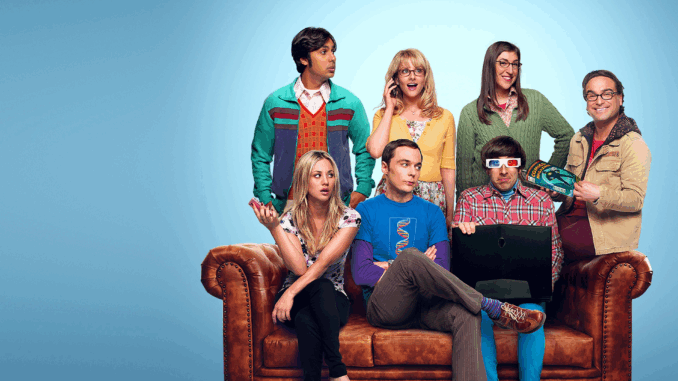
To say China is a desirable market for foreign television shows, like The Big Bang Theory, is an understatement of grand proportions. Subtitled episodes of Downton Abbey are watched by 160 million viewers. China’s Got Talent, has seen as many as 400 million viewers an episode. In The Guardian, Pierre Cheung, BBC Worldwide’s vice-president of greater China, said, “In the UK, a top-rated TV show may just get into double-digit millions [in audience size], but China has 1.4 billion people and gets easily double, triple or quadruple that. The market is a massive opportunity.” Access to the Chinese market, though, comes with a price, as only content that has been deemed acceptable for the Chinese public is allowed to be broadcast in the country. In other words, anything that suggests China is anything less than positive, and/or negatively impacts Chinese society, runs the risk of being altered or banned outright. You might not think The Big Bang Theory has anything in it that would warrant a Chinese ban, but in 2014, that’s exactly what happened.
‘The Big Bang Theory’ Glorified Nerd Culture

The Chinese love American TV series, with shows like Prison Break, Agents of S.H.I.E.L.D., and Friends among the most popular (one Chinese sitcom, Ipartment, was even accused of ripping off Friends and other American comedies). But Chinese fans flat-out loved The Big Bang Theory, with the show consistently outperforming its peers by reaching upwards of 1.3 billion views. The show, and other American programs, enjoyed the access provided by Chinese online video providers, who, surprisingly, were allowed to negotiate content deals with rights holders globally without shows needing official approval for broadcast. That changed in April 2014 when the Chinese government’s media watchdog, the State Administration of Press, Publication, Radio, Film and Television (SARFT), suddenly banned The Big Bang Theory, The Good Wife, NCIS, and The Practice, pulling the episodes from streaming sites like Sohu TV, iQiyi, and Youku. SARFT vaguely explained the rationale for the move by stating that the shows were “either out of copyright or violated clause 16 of the rules of online broadcasting, a clause that prohibits pornography, violence, and ‘content that violates China’s constitution, endangers the country’s sovereignty and territorial integrity, provokes trouble in society, promotes illegal religion, and triggers ethnic hatred.'”
The lack of a definitive answer led to speculation as to the reason why the shows were banned. Many saw the move as an attempt to limit the influence of the West in China. As for The Big Bang Theory ban specifically, people claimed the Chinese government didn’t want nerds and geeks (or “losers”) to become trendy. While this theory about the show might seem absurd, there may actually be some logic to it. A 2013 survey conducted by Sohu found that over 80 percent of those surveyed, between the ages of 24 and 34, identified themselves as “diaosi,” a term for poor, girlfriend-less geeks that roughly translates as “loser.” That percentage is even higher among Chinese college students, who make up the largest audience for The Big Bang Theory, at a whopping 90 percent. The once-derided term became embraced, giving those who failed by larger social conditions in the country an identity they could rally around. While The Big Bang Theory may not truly be controversial, there is no denying that the characters in the show would resonate strongly with the diaosi.
